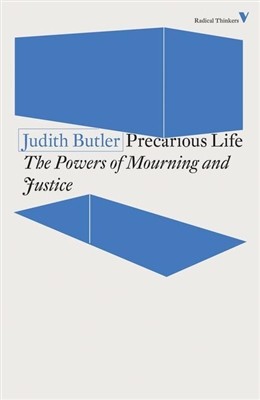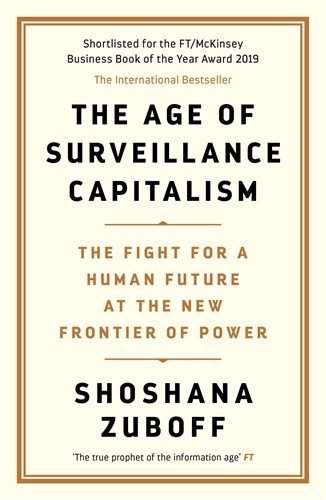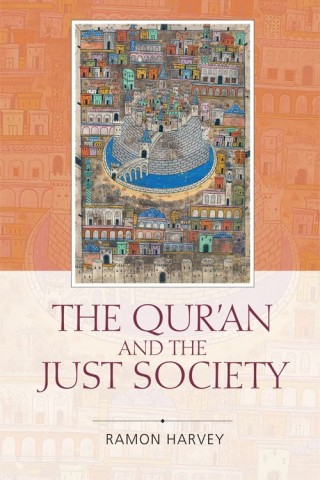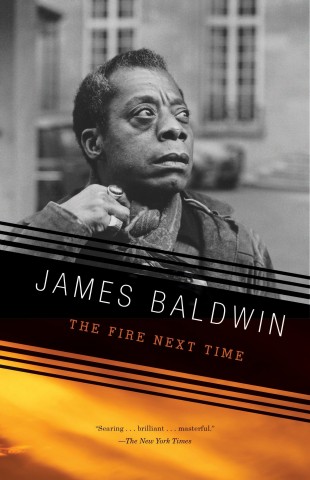Judith Butler's "Precarious Life: The Powers of Mourning and Justice" (2004) was published in the "Radical Thinkers" series of Verso Books. The book is a series of essays written after Sept 11, 2001, collected in this short publication of ~150 pages (of writing, excluding Notes). In the Preface, the author suggests in the years following Sept 11 intellectuals and journalists did not uphold their duty to justice, wherein an injustice muted critical discourse and public debate. The specifics of the essays are less timely today, but raise general questions about power – power over media and what can be spoken in the public sphere, power over what can and cannot be asked or discussed, power over life and death, the power to decide whose life should be mourned and whose ignored. The creation of binaries of the with-us-or-against-us type, stifled the ability to engage, Butler for example suggest that opposing war was equated with sympathizing or justifying terrorism. While the details have changed, the processes persist and the arguments in this book remain relevant. Worth a read.
We are increasingly surrounded by technology, the data collection it employs is not only pervasive but also seemingly unescapable. In 2019 Shoshana Zuboff wrote "The Age of Surveillance Capitalism: The Fight for a Human Future at the New Frontier of Power", which has gone viral (for a social sciences academic-ish book), being cited nearly 10,000 times so far. The book is 691 pages and well beyond possible to summarize in a few lines. And, an amazing amount has changed since 2019 alone. The book may be longer than it needed to be, as the author weaves in personal and historical stories (which add layers of interesting nuance), however these also may attract a broader readership for a book than is more engaging and storytelling than a typical academic one. A few quotes to spark interest for anyone who has not yet read it.
The book begins with a definition: "Sur-veil-lance Cap-i-tal-ism, n. 1. A new economic order that claims human experience as free raw material for hidden commercial practices of extraction, prediction, and sales; 2. A parasitic economic logic in which the production of goods and services is subordinated to a new global architecture of behavioral modifications; 3. A rogue mutation of capitalism marked by concentrations of wealth, knowledge, and power unprecedented in human history; 4. The foundational framework of a surveillance economy; 5. As significant a threat to human nature in the twenty-first century as industrial capitalism was to the natural world in the nineteenth and twentieth; 6. The origin of a new instrumentarian power that asserts dominance over society and presents startling challenges to market democracy; 7. A movement that aims to impose a new collective order based on total certainty; 8. An expropriation of critical human rights that is best understood as a coup from above; an overthrow of the people's sovereignty."
"Surveillance capitalism operates through unprecedented asymmetries in knowledge and the power that accrues to knowledge. Surveillance capitalists know everything about us, whereas their operations are designed to be unknowable to us. They accumulate vast domains of new knowledge from us, but not for us. They predict our futures for the sake of others' gain, not ours." (p. 11)
"Google's stores of behavioral surplus now embrace everything in the online milieu: searches, e-mails, texts, photos, songs, messages, videos, locations, communication patterns, attitudes, preferences, interests, faces, emotions, illnesses, social networks, purchases, and so on. A new continent of behavioral surplus is spun each moment from the many virtual threads of our everyday lives as they collide with Google, Facebook, and, more generally, every aspect of the internet's computer-mediated architecture. Indeed, under the direction of surveillance capitalism the global reach of computer mediation is repurposed as an extraction architecture." (p. 128-129)
"Surveillance capitalism's antidemocratic and antiegalitarian juggernaut is best described as a market-driven coup from above. It is not a coup d'etat in the classic sense but rather a coup de gens: an overthrow of the people concealed as the technological Trojan horse that is Big Other. On the strength of its annexation of human experience, this coup achieves exclusive concentrations of knowledge and power that sustain privileged influence over the division of learning in society: the privatization of the central principle of social ordering in the twenty-first century. Like the adelantados and their silent incantations of the Requirimiento, surveillance capitalism operates in the declarative form and imposes the social relations of a premodern absolutist authority. It is a form of tyranny that feeds on people but is not of the people. In a surreal paradox, this coup is celebrated as "personalization," although it defiles, ignores, overrides, and displaces everything about you and me that is personal." (p. 513)
An earlier post, on Equity and Fairness in Islam, added to conversations in ethics about the balance between equity and equality. Similarly, in ethics classes we look at questions of justice, which usually takes us to Rawls and Pogge. What else might we consider when thinking about these broader justice issues? And, what other traditions, peoples, and cultures could inform that conversation? In 2017, Ramon Harvey published "The Qur'an and the Just Society" (with Edinburgh University Press), providing a useful addition. The book is an academic work (building on a PhD thesis). However, it is largely accessible (maybe for a university audience), with the aim making this ethical perspective more readily available in English. The author concludes by saying: "It is my hope that through sustained careful work of this kind, a distinctive Qur'anic vision of the just society can be adequately represented in the complexity of the contemporary world." (p. 194). A few notes from the book:
"I produce a thematic reading of the Qur'anic blueprint for the just society. That the Quran could contain such an ethical structure beneath the surface of the scripture's language, and encoded within the dynamic reshaping of lives in its first audience, has been a fundamental assumption in writing this book. Angelika Neuwirth seems to have a similar idea in mind when she states, 'There was a vivid image in the Qur'an of the Ideal City - the City of God - long before al Farabi's famous reworking of Plato's Politeia.' I read the Qur'an as an intensely moral text, continuously and repeatedly hailing the reader, or listener, as a responsible agent who must make choices with deep spiritual implications." (p. 2)
"...the Qur'an's story of the human condition holistically can furnish us with key aspects of its moral theology that are lost when considering verses in isolation. The leitmotif of this narrative is God's wisdom to create life as a debt owed and ultimately repaid as a test of morality. Although this notion of wisdom makes human life purposeful and intelligible, there remains an element of ineffability in its application as a quality to characterise the divine. Within the created world, it is represented by the Scale, read here as a Qur'anic analog to natural law. This interpretation, combined with the Qur'an's general discourse and specific notion of fitra, leads to a moral realist metaethics, corresponding to the knowability of at least basic ethical norms before the descent of revelation. The justice that the Qur'an calls upon its audience to establish, then, is predicated on realizing the wisdom of God's revealed Law such that it builds upon His natural law." (p. 25)
"The Qur'an sets the establishment of justice within society as a central goal of human life, yet inextricably links it with the inward quest to be true to the spiritual covenant with one's Creator. Here, then, is a moral teleology to which the normative function of the shariah, the divine law and moral code, is directed. If human beings, by virtue of their intelligence and free will, are able to despoil the world, so too are they called to act as stewards. The guidance delivered through revelation, whether in the form of commandments, prohibition, or recommendations, is not merely to test the obedience of moral agents, but to embed wise purposes [hikmas] within the life of the wider community. Based on this understanding, societal justice [qist] is the condition of society realized by the Wisdom [hikma] of God's Writ [kitab], which matches the scale [mizan] of moral value." (p. 191)
Notes from Baldwin's 1962 two essays in The Fire Next Time, the first a letter to his nephew and the second a longer piece that reflects on engagements with faith and identity:
"Do I really want to be integrated into a burning house?" (p. 94)
"Let me spell out precisely what I mean by that, for the heart of the matter is here, and the root of my dispute with my country. You were born where you were born and faced the future that you faced because you were black and for no other reason. The limits of your ambition were, thus, expected to be set forever. You were born into a society which spelled out with brutal clarity, and in as many ways as possible, that you were a worthless human being. You were not expected to aspire to excellence: you were expected to make peace with mediocrity." (p. 7)
"The details and symbols of your life have been deliberately constructed to make you believe what white people say about you. Please try to remember that what they believe, as well as what they do and cause you to endure, does not testify to your inferiority, but to their inhumanity and fear." (p. 8)
"Time catches up with kingdoms and crushes them, gets its teeth into doctrines and rends them; time reveals the foundations on which any kingdom rests, and eats at those foundations, and it destroys doctrines by proving them to be untrue." (p. 51)
"The word "independence" in Africa and the word "integration" here are almost equally meaningless; that is, Europe has not yet left Africa, and black men here are not yet free. And both of these last statements are undeniable facts, related facts, containing the gravest implications for us all." (p. 87)
"I know that what I am asking is impossible. But in our time, as in every time, the impossible is the least that one can demand—and one is, after all, emboldened by the spectacle of human history in general, and American Negro history in particular, for it testifies to nothing less than the perpetual achievement of the impossible." (p. 104)




